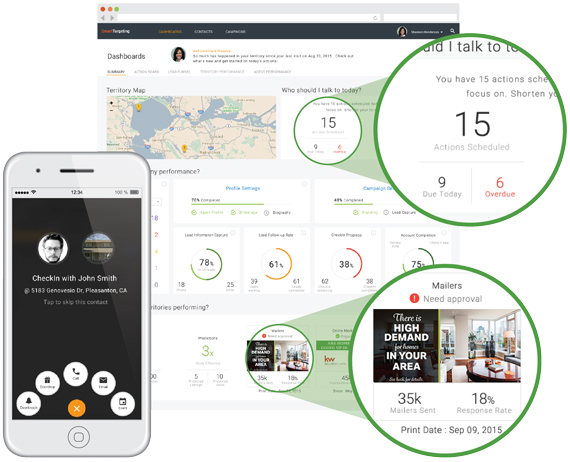Every real estate startup under the sun is looking to become the industry’s next tech mainstay, but not every one makes the cut. The Real Deal sifted through dozens of startups this month and found several interesting tools that could have a significant impact on the industry.
Floored
Turning landlords into 3D architects
Chelsea-based Floored made a splash when it debuted in 2012 with interactive 3D models of office space. But this past October, founder Dave Eisenberg introduced novel software that enables landlords to be their own architects. The product, dubbed Protofit, allows landlords to customize layouts for prospective office tenants with a few swipes on an iPad. Eisenberg said Floored will roll out a 3D version of Protofit in early 2016, and by the end of the year customers can expect a version of the software that is compatible with virtual-reality headsets. “We definitely have a lot of activity right now,” said Eisenberg, who has raised $7.4 million to date.
FieldLens
Connecting construction workers with shared To-Do lists
FieldLens is a mobile communication system for the construction industry that sees itself as a replacement for the myriad phone calls, text messages and emails sent daily between building owners, general contractors, subcontractors, architects, etc. A kind of virtual, shared To-Do list, FieldLens connects everyone involved in a project: A superintendent inspecting a job site can post a task for subcontractors to complete and let those workers know, in real time, what adjustments are needed. Managers are pinged when jobs are done, and they can adjust due dates via a shared calendar for the project or send reports to the building owner. Founded by Doug Chambers, formerly of Tishman Construction, and Matt Sena, a Goldman Sachs analyst, the NYC-based company has raised $12.6 million since 2011. The product officially launched in 2014, and this fall the company signed a three-year deal with New Jersey-based Wohlsen Construction Company.
Quantierra
Applying Big Data to investment decisions
NYC-based Quantierra, which is set to launch in the first quarter, created a tool that uses Big Data to make investment decisions by analyzing transaction history, land maps, zoning and more. Say a developer wants to build a 100,000-square-foot apartment building; Quantierra can run a query that identifies every possible site, including those that would have to be assembled using development rights. It then layers on additional data to see which sites would be the most profitable, said co-founder Ben Thypin, formerly of research firm Real Capital Analytics. Quantierra, which makes its own investments and acts as a broker, focuses on properties between $5 million and $20 million. “Ultimately, we’d like to execute regardless of size,” Thypin said, referring to the firm’s target market.

SmartZip Analytics
Engrain
Touring properties via touchscreen
Denver-based Engrain lets developers and landlords use touchscreen systems to show prospective buyers or tenants available commercial or residential properties. The company’s “TouchTour” program lets buyers view spaces, flip through photos and see pricing models and availability. Commercial leasing teams can use it to scroll through the building with potential tenants, stopping on floors with availabilities. Launched in 2007, Engrain introduced a new product for condo developers in October 2015, which integrates analytics and shows which floorplans are most popular. The company, named one of Inc. magazine’s fastest-growing companies in 2015, generated $5.5 million in revenue in 2014.
SmartZip Analytics
Predicting buyers and sellers
Pleasanton, Calif.-based SmartZip Analytics has developed a crystal ball of sorts that lets agents predict real estate moves. The startup compiles information from dozens of sources — social media, public records and more — to identify triggers typically associated with moving. For example, the owner of a one-bedroom apartment who registers for a new Social Security number is likely to have welcomed a new baby and may want a larger home. Brokers can then map custom territories to identify prospects, send out automatic marketing materials and keep track of leads from their mobile device. SmartZip has raised $18.6 million since 2009 and recently tapped the NYC market.
